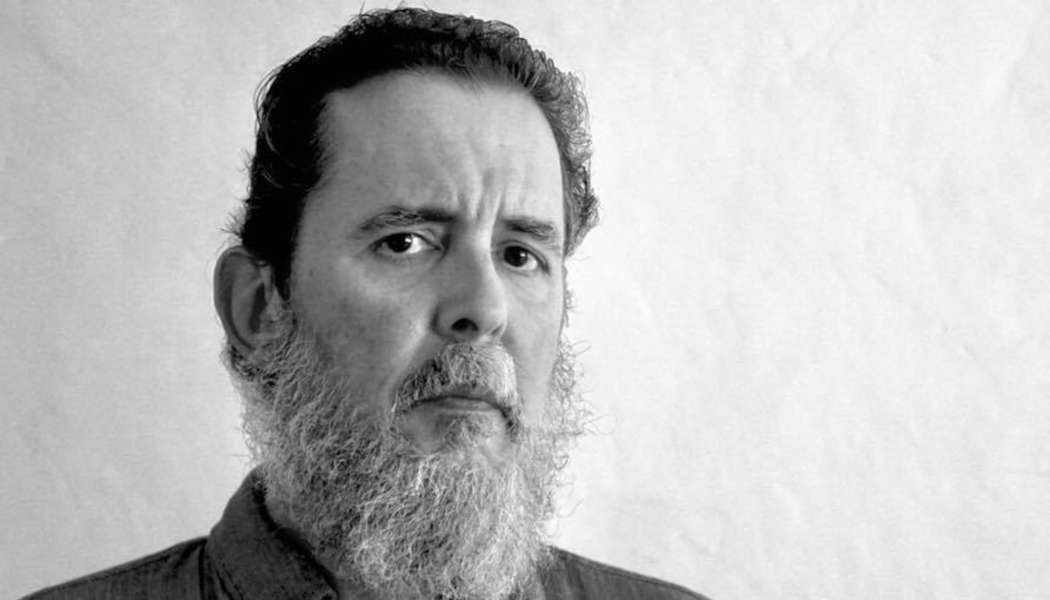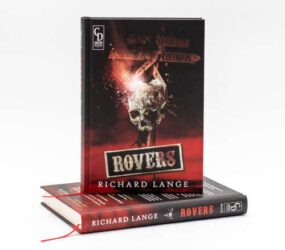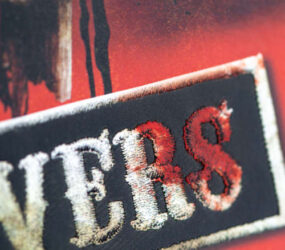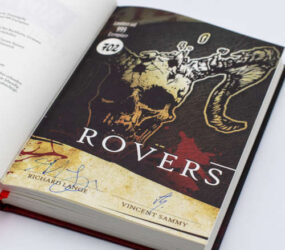Interview mit Richard Lange
Mit Rovers ist Richard Lange ein wirklich beeindruckender Roman gelungen. Obwohl es vordergründig um Vampire geht, vermeidet er gekonnt Klischees und entwirft ein überraschend frisches Bild von Vampiren. Wie der Autor selbst sagt, ging es ihm auch gar nicht so sehr darum einen Roman über Vampire zu schreiben. Rovers ist so rasant wie ein spannender Film, trifft aber auch leise und emotionale Zwischentöne. Richard Lange spricht mit uns über Einflüsse auf seinen Roman, wer seine Lieblingsfiguren sind, wie sich sein Schreibstil entwickelt hat und worauf wir uns als nächstes freuen können.
pressplay: Rovers is a really unique Vampire-Novel, as it avoids the usual cliches. How did you manage to do that?
Richard Lange: I set out to write a “realistic” story in which the vampires were more like desperate, drug-addicted serial killers than suave, sexy creatures of the night. In service to this more realistic approach, I decided to ignore many of the usual supernatural and religious vampire tropes and lore: fangs, crucifixes, holy water, the transformation into various animals. I used what worked for this tale and threw away what didn’t. I wasn’t writing a horror novel, I was writing a story about two brothers with a complicated relationship, about a man searching for his son, about a gang of outlaw bikers that was falling apart. The vampirism aspect was secondary to developing relatable characters and unique narrative voices and strategies and capturing the era and setting. I knew this would put some readers off, but trusted that others would enjoy a fresh take on old myths.
What were the biggest influences for Rovers?
There were many, many influences. Here are a few of the main ones.
- Bram Stoker’s novel Dracula: The diary entries of my character Charles pay homage to this book’s epistolary narrative style.
- John Steinbeck’s novel Of Mice and Men: The relationship between the two brothers, Jesse and Edgar, in my book has roots in the relationship between the friends George and Lenny in this book.
- William Faulkner’s novel The Sound and the Fury: The narrative voice of Edgar stems from the Benjy Compson chapters in this book.
- Homer’s Iliad: The bloody, graphic battles inspired my fight scenes.
- The film Near Dark: This film featured a leather-clad “family” of vampires that inspired my vampire biker gang.
You have a lot of characters in Rovers and they all have their own stories to tell. Who is your favorite character and why?
My favorite is probably the mentally challenged brother Edgar. His chapters were the most fun to write, in terms of playing with language. I also like Antonia, the leader of the biker gang. She has interesting history. I could probably do a whole novel about her.
Which character was easy to write and which one was the most difficult?
None of them were easy to write, but one tricky aspect was making sure that the various members of the biker gang had distinct personalities. That’s difficult to do when you’re portraying a group like that.
When you start working on a new novel, how do you get started? Do you start with characters, plot, a certain image or setting? How did you come up with the idea for Rovers?
Normally, I start with some small idea, usually a news story. For my novel The Smack, the inspiration was an article about a gang of American soldiers in Iraq who stole a bunch of money from the Army and smuggled it back to the U.S. I came up with a main character, a down-on-his-luck conman, and the book grew out of that. I never outline, I just start writing and follow the story wherever it goes. Rovers was different though. It started as an unproduced screenplay I wrote many years ago. I’d been thinking it might make an interesting novel, so I gave it a shot. The book quickly veered far from the script though. The novel is much more complex.
Your writing style is truly impressing. How did you develop your own literary voice?
I developed my voice the same way most writers do: I started out imitating writers I admired, and gradually, over many years, those influences combined and congealed to become a unique voice, like copper and tin mixing to make bronze. My style is an amalgamation of Ernest Hemingway, Jack Kerouac, Raymond Carver, Robert Stone, Denis Johnson, Elmore Leonard, and many other writers I love.
I read, that you studied film. If you were a filmmaker instead of a writer, in which department would you be working and what kind of movies would you make?
I love films, but I’m not suited for filmmaking. It’s a collaborative art, and I’m a despot when it comes to my work. I’m open to writing for film and TV, but that’s as close as I care to get to that industry.
If it was up to you, who would be your favorite director for an adaptation of Rovers? And what would your dream cast look like?
Rovers is currently in development as a TV series, so I’m not going to say anything to jinx the project or get myself in trouble!
Can you tell us something about your current project?
I have a new novel, Joe Hustle, coming out in the U.S. in June. It’s a John Cassavetes/Charles Bukowski-influenced hard-boiled love story set in contemporary Los Angeles. There’s no supernatural element to it at all. The book I’m working on right now, it’s too early to talk about. At this point, it starts like Graham Greene but ends up in H.P. Lovecraft territory.
Thank you very much for the interview.





